2021: A Strange but Successful Session
Throughout the 2021 Legislative session, Young Invincibles Rocky Mountain has led, supported, and advocated on numerous policies to improve the lives of young adults in Colorado. Here’s a snapshot of the policies we worked on to increase access and affordability to higher education, racial equity, health care, as well as removing barriers to economic opportunity.
Higher Education
In order to eliminate biased and antiquated barriers to pursuing a higher education, we led on legislation to increase diversity at state universities.
- Base Funding Adjustment: Young Invincibles worked with our local partner Healthier Colorado to change how higher education is funded in Colorado. We advocated for a redistribution of funds that would allocate $100M of the general fund to prioritize the academic success of historically underrepresented minorities, first-generation, low-income, and Pell-eligible students. This increases both access and opportunities for the success of these students. YI led the stakeholding process and also had multiple young adults from our network testify in support before the Joint Budget Committee.
- Test Optional Admissions: Colorado became the first state in the country to give students the option on whether to submit their national test scores (ACT or SATs) to all public institutions of higher education. College admission counselors do their best to evaluate students holistically, and this law empowers them to do so. Research has clearly shown that the SAT/ACT are not stronger predictors of college success than high school GPA. We also know that apart from students with learning disabilities or test anxiety, standardized tests place low income, under-represented minorities, and first generation students at a significant disadvantage. By making Colorado state universities test-optional, they increase the access and diversity of students on their campus. Young Invincibles advocated on HB21-1067 College Admission Use of National Test Scores through every part of the policy process. Young adults, policy fellows, and Youth Advisory Board members testified in support of the bill in both House and Senate Education committees. Young Invincibles also lobbied to legislators with Young Advocates and Youth Advisory Board members in support of HB21-1067 on our April 9th Advocacy Day.
 Bill sponsors and Young Invincible Policy Fellow, Sarah Staron, were quoted in the following news piece: Lawmakers lift SAT and ACT requirements, end legacy admissions to advance racial equity within colleges. KOAA News, Channel 5.
Bill sponsors and Young Invincible Policy Fellow, Sarah Staron, were quoted in the following news piece: Lawmakers lift SAT and ACT requirements, end legacy admissions to advance racial equity within colleges. KOAA News, Channel 5.
- Prohibiting Legacy Admissions: The practice of legacy admissions, admitting students based upon familial connections, has been hailed as an admissions practice that works against diversity measures and disadvantages first-generation and low income students. While the majority of Colorado state schools have moved away from this policy as practice, some still attribute slight priority to legacy students. HB21-1173 prohibits the use of legacy as a factor of college admissions and ensures a more equitable admission process. Young Advocates conducted the majority of the initial research on this policy as part of the Young Advocates Fall 2020 program and participated in advocacy and testimony with local partner, DFER, throughout the legislative process.
 Bill advocates and policy fellow, Sarah Staron, were quoted in the following article on the importance of passing legislation like HB21-1173: Colorado banned legacy admissions. But what does that really mean for students?
Bill advocates and policy fellow, Sarah Staron, were quoted in the following article on the importance of passing legislation like HB21-1173: Colorado banned legacy admissions. But what does that really mean for students?
- Revising Student Financial Literacy Standards: Students who are graduating high school need to be equipped with financial literacy in order to build successful lives. HB21-1200 ensures that “the financial literacy standards for ninth through twelfth grade include an understanding of the costs associated with obtaining a postsecondary degree or credential and how to budget for and manage the payment for those costs, including managing student loan debt and accessing student aid through completion of the free application for federal student aid (FAFSA) and the Colorado application for state financial aid (CASFA); understanding credit cards and credit card debt; understanding homeownership and mortgages; and understanding retirement plans, including investments and retirement benefits.” This policy is designed to empower students with the information to make the best financial decisions for them, especially as it relates to pursuing postsecondary education.
- In a CPR News Colorado Matters radio interview, bill sponsor Representative Cathy Kipp, local student Nat Landin from YI partner, New Era, and Sarah Staron, Policy Fellow talked about the importance of this legislation as one of the levers to address the student debt crisis.
- Protecting Private Borrowers of Student Loans: The student debt crisis is out of control and has far reaching implications for students and their loved ones. Local partner, New Era, led SB21-057 Private Lenders of Student Loans Acts and Practices in order to prevent predatory private lenders from taking advantage of borrowers and their cosigners. Private loans are riskier and have significantly fewer safeguards for borrowers to manage their monthly payments. Also, these loans often aren’t eligible to be discharged through the normal bankruptcy process, meaning that this immense debt can follow a student for their entire life. This lack of consumer protection isn’t just an issue of fairness and opportunity, but also an issue of racial justice and equity. Black, Latinx and low-income borrowers use private student loans less when compared to white and higher-income borrowers, but frequently face far greater challenges in repayment. Studies show that Black and Latinx borrowers are four times more likely to fall behind due to economic hardship than their white counterparts, exacerbating racial inequity. SB21-057 enforces accountability for private student loan lenders and instills protections for student borrowers and their families.
- Sarah Staron, Policy Fellow, testified before the House Education and the Senate Education committees in support of SB21-057 Private Lenders of Student Loans Acts and Practices. The bill was passed out of both committee’s and chambers and is headed to the governor’s desk for signature (as of 6/4).
- Open Education Resources Expanded: Open Education Resources can help students save thousands of dollars over the course of their degree. Textbook prices have risen 3X faster than inflation and over two-thirds of students report not being able to purchase or rent textbooks or other class materials due to cost. A 2016 report found that 30% of students are forced to choose between their textbooks or their rent when it comes to their financial aid dollars. SB21-215 Use of Open Education Resources in Higher Education, supports open textbooks by expanding Colorado’s grant program for professors to create open (free) educational resources and also requires colleges to let students know which courses have open resources. A Colorado Young Advocate and Youth Advisory Board member, Chris Nelson, published a blog post related to the cost of textbooks in CO on Friday, February 5th in Invincibles Voices.
- Hunger Free Campus: Young Invincibles partnered with Hunger Free Colorado and the Colorado Department of Higher Education to create a Hunger Free Campus Checklist. The Hunger-Free Campus Checklist is a statewide initiative to address disparities in food insecurity on college campuses through program implementation and systems reform to ensure that all students in Colorado have the resources they need without putting an extra burden on schools. The Checklist aims to create inclusive, student-focused, programs that enhance existing campus resources to benefit both students and institutions of higher education. You can check it out here!
Physical Health Care
To increase the access and affordability of quality health care, Young Invincibles supported the following policies. These bills were designed to lower the cost of prescription drugs and private insurance premiums.
- The CO Option: Standardized Health Benefit Plan Colorado Option, HB21-1232, began as a pathway to a state public option for health insurance Colorado. After the amendments process, it lost the public option pathway but retained the provision of requiring private insurance providers to lower the costs of their premiums by 10-15% by year 2023. One in five Coloradans went without needed health care due to cost before COVID-19. The pandemic has worsened this reality. The Colorado Health Insurance Option, aka the CO public option, seeks to ensure all Coloradans can access the quality, affordable health care they need. Young Invincibles supported the work of the Colorado Consumer Health Initiative (CCHI) to advocate and lobby in support of this legislation. Young advocates lobbied to legislators on HB21-1232 on our April 9th Advocacy Day.
- Prescription Drug Affordability Review Board (PDAB): Prescription drug prices have been drastically increasing over the years, and consumers shouldn’t be inhibited from taking necessary prescription drugs due to costs. The Prescription Drug Affordability Review Board will be made up of industry experts who review the affordability of certain drugs and establish upper payment limits for these drugs. U.S. consumers pay much higher costs for prescription drugs than consumers in other countries and this proposal will create savings as high as 75% on the current costs of the most unaffordable drugs. The Prescription Drug Affordability Board will be able to investigate, review, and establish more affordable costs for the most expensive and unaffordable prescription drugs. The Board would also investigate and review when drug companies sharply increase the cost of a specific drug, increasing accountability.
 Sarah Staron, Policy Fellow and Linda Schiller, Research Fellow, attended a rally at the Capitol with CCHI and other healthcare advocates in support of SB21-175, Prescription Drug Affordability Review Board on Wednesday, May 19th. Sarah and Linda also testified before the House Health & Insurance Committee in support of SB21-175 on the evening of May 19th.
Sarah Staron, Policy Fellow and Linda Schiller, Research Fellow, attended a rally at the Capitol with CCHI and other healthcare advocates in support of SB21-175, Prescription Drug Affordability Review Board on Wednesday, May 19th. Sarah and Linda also testified before the House Health & Insurance Committee in support of SB21-175 on the evening of May 19th.
- Expanding Rx Importation: SB21-123, Expand Canadian Rx Importation Program, authorizes the Department of Health Care Policy & Financing to expand its current drug importation program to include importation from other countries in addition to Canada, if federal policy allows such an expansion. This bill ensures Colorado’s readiness to expand opportunities for consumer savings on prescription drugs if federal statute changes to allow importation from additional countries. The Department estimates drugs imported from Canada, on average, are 63% cheaper compared to Colorado prices. If the current Importation Program with Canada expands to other countries, the Department’s initial analysis shows that Colorado could access even lower drug prices.
- Youth Advisory Board member, Jessica Leitch, shared her story about how the rising cost of prescriptions have impacted her ability to access her mental health medication consistently. Jessica’s story was shared in both the House and Senate committee hearings for this bill, as well as in support of SB21-175, Prescription Drug Affordability Review Board.
Mental Health Care
To help establish our policy agenda, Young Invincibles surveyed many young adults across the state in 2020 and the results showed a huge need in mental health care access and affordability. We advocated and passed bills that allowed our young adults to have more equitable, inclusive and accessible mental health resources and insurance coverage.
- Healthy Minds Checklist: Poor mental health can impact a student’s GPA, physical health, social life and professional prosperity, and can present itself through depression, anxiety, eating disorders and addiction. Colorado is seeing gaps in who and how students are accessing services which can lead to further disparities in who experiences the damaging effects of mental health issues at institutions of higher education. YI worked with 11 different universities and the Department of Higher Education to establish a Healthy Minds Checklist. YI led on research, stakeholder meetings, and surveys to help make an equitable and inclusive checklist. This checklist outlines what programs must offer to meet the checklist requirements. To meet checklist requirements, institutions must implement the four Core Programs and two Focused Initiatives in each focus area of Awareness, Access, and Prevention. The Core Programs and Focused Initiatives are designed to give institutions flexibility to use the resources that many campuses already have while ensuring implementation of evidence-based programming that will specifically meet the needs of students. Four schools in CO earned a destination in May! You can check it out here!
- Insurance Coverage For An Annual Mental Health Wellness Examination: According to Mental Health America, Colorado is ranked 47th overall in prevalence and access to mental health services, indicating high prevalence of mental illness and lower rates of access to care. In 2019, Colorado Health Institute affirmed that 15.3% of Coloradans reported poor mental health, compared with 11.8% in 2017. Young Invincibles led on research, developing fact sheets and organizing testimony for HB 21-1068. This bill will require private health insurance plans to cover an annual mental health wellness examination. The coverage must: be comparable to the coverage of a physical examination; comply with the requirements of federal mental health parity laws; and not require any deductibles, copayments, or coinsurance. During our Digital Advocacy day, our Young Advocates from the Spring 2021 cohort alongside young adults from across the state, advocated for HB21-1068 by providing testimony, fact sheets, talking points, and answering any questions.
 Once HB21-1068 was introduced, our Youth Advisory Board Members, Annelise Grygiel, Chris Nelson, Kaitlyn Tollefson, and Kody Simpson gave powerful testimonies. Alongside them, Jessica Leitch and Jasmine Razo allowed our Young Invincibles staff to read their testimonies. These brave advocates’ testimonies allowed our Annual Mental Health bill to receive a 12-0 vote from the House Health & Insurance Committee! HB21-1068 also recieved a 7-0 vote from the Senate Health & Human Services. This is a huge accomplishment as it is very rare to see such unanimous results. With such amazing results, our advocates and Youth Advisory board members created a video asking for our Governor, Jared Polis’ support. This video can be found here.
Once HB21-1068 was introduced, our Youth Advisory Board Members, Annelise Grygiel, Chris Nelson, Kaitlyn Tollefson, and Kody Simpson gave powerful testimonies. Alongside them, Jessica Leitch and Jasmine Razo allowed our Young Invincibles staff to read their testimonies. These brave advocates’ testimonies allowed our Annual Mental Health bill to receive a 12-0 vote from the House Health & Insurance Committee! HB21-1068 also recieved a 7-0 vote from the Senate Health & Human Services. This is a huge accomplishment as it is very rare to see such unanimous results. With such amazing results, our advocates and Youth Advisory board members created a video asking for our Governor, Jared Polis’ support. This video can be found here. - Due to the coverage of this bill, Kaitlin Tollefson, a Youth Advisory Board member also shared her story in the Loveland Reporter-Herald. Check it out here.
Workforce & Equity
- Expanding Access to Early Childhood Education: Childcare is a huge barrier for women’s employment, and a childcare shortage negatively impacts Colorado’s economy as a whole. In Colorado and across the nation, there is a shortage of affordable and high-quality childcare options, especially for children ages 0-5. While the issue existed prior to 2020, the pandemic has exacerbated the issue as many childcare centers have closed their doors or significantly reduced capacity. This lack of quality care at an early age can negatively impact one throughout the rest of their life, often resulting in increased dependence on public benefits later on. In other words, it saves the state money to invest in Early Childhood Education. SB21-236, Increase Capacity Early Childhood Care & Education, was introduced to address the childcare crisis in Colorado in a few different ways. It creates new grant programs to increase funding for childcare facilities, creates a scholarship program for early child care and education, and it increases grant funding for childcare teacher salaries. Young Invincibles Research Fellow, Linda Schiller, submitted written testimony to the House Education committee in support of SB21-236 Increase Capacity Early Childhood Care & Education. YI’s work on this bill has been a part of a larger research project into barriers for women’s economic empowerment — look out for that research in the coming months!
 Remove Lawful Presence Verification Credentialing: Remove Lawful Presence Verification Credentialing or SB21-077, removes the lawful presence verification when applying for credentials through the Department of Regulatory Agencies, who manage accreditation for over 100 professions. Before Young Invincibles advocated for the passage of this bill, the Department of Regulatory Agencies (DORA) did not issue professional licenses to those that needed lawful presence, for example, DACA recipients. Regardless of a person’s academic attainment, students would graduate with a degree that required them to be licensed to practice in their field, and upon graduation, learn they couldn’t practice due to lack of licensure, or that they couldn’t pursue a career that requires an occupational license entirely. Young adults, Stephanie Beltran, Valetina Pons, and Jose Nava- Lopez, testified in front of the Senate Business, Labor, & Technology and the State, Civic, Military, & Veterans Affairs. Jose Nava- Lopez’s video can be found here, and Valentina Pons video can be found here. During our Digital Advocacy Day, Young Advocates from our 2021 Spring Cohort and young adults across the state advocated for SB21-077 by leading in Q&A’s, fact sheets and talking points.
Remove Lawful Presence Verification Credentialing: Remove Lawful Presence Verification Credentialing or SB21-077, removes the lawful presence verification when applying for credentials through the Department of Regulatory Agencies, who manage accreditation for over 100 professions. Before Young Invincibles advocated for the passage of this bill, the Department of Regulatory Agencies (DORA) did not issue professional licenses to those that needed lawful presence, for example, DACA recipients. Regardless of a person’s academic attainment, students would graduate with a degree that required them to be licensed to practice in their field, and upon graduation, learn they couldn’t practice due to lack of licensure, or that they couldn’t pursue a career that requires an occupational license entirely. Young adults, Stephanie Beltran, Valetina Pons, and Jose Nava- Lopez, testified in front of the Senate Business, Labor, & Technology and the State, Civic, Military, & Veterans Affairs. Jose Nava- Lopez’s video can be found here, and Valentina Pons video can be found here. During our Digital Advocacy Day, Young Advocates from our 2021 Spring Cohort and young adults across the state advocated for SB21-077 by leading in Q&A’s, fact sheets and talking points.
As we said, it has been a busy session! There were also a few pieces of legislation that Young Invincibles did not get a chance to work on directly, but are still big wins for young adults across the state!
- Economic Opportunity
- SB21-148 Creation of Financial Empowerment Office: The bill creates the financial empowerment office to grow the financial resilience and well-being of Coloradans through specified community-derived goals and strategies. The office is authorized to partner with governmental bodies, community organizations, financial institutions, local service providers, philanthropic organizations, and other organizations as necessary to achieve the purposes of the office. This bill is in line with YI’s policy priority of empowering young adults with economic opportunity, especially for those furthest from power and privilege.
- Immigration Legal Defense Fund: Immigration proceedings remain the only legal proceeding in the country where someone can be detained without the guarantee to a lawyer, even if they are a child or an asylum seeker. As a result, the vast majority of immigrants facing deportation and detention who cannot afford a lawyer are forced to face a judge alone. Everyone, regardless of immigration status or ability to pay, should have the opportunity to present their case in court in a fair and just manner by having someone who can effectively advocate for their interests. HB21-1194 would allow immigrants in deportation proceedings to have access to legal representation, increasing their chances to successfully navigate the complex and adversarial federal immigration system. Having access to a lawyer means families can stay together and ensures Coloradans are guaranteed due process. Young Invincibles advocated for the passage of this bill by lobbying legislators to support the policy in committee hearings, and encouraging their colleagues to support as well.
- Workforce
- Broadband access: Internet access has never been more important to economic opportunity and education than it is in 2021. SB21-060, Expand Broadband Service, will provide financial assistance for income-eligible households, prioritizing areas and households that have been critically underserved.
- Agricultural Workers Rights: SB21-087 removes the exemption of agricultural employers and employees from the Colorado “Labor Peace Act” and authorizes agricultural employees to organize and join labor unions; engage in protected, concerted activity; and engage in collective bargaining; and overall have rights for better wages, protection, and benefits. Our young adults, Jose Nava-Lopez, and Stephanie Beltran testified in support.
- Substance Abuse Prevention
- HB21-1276, Prevention of Substance Use Disorders, requires a health benefit plan to provide insurance coverage for non pharmacological treatment as an alternative to opioids. Young Invincibles signed on in support and provided additional support when requested.
- Gun Violence Prevention
Legislators responded to the March 22, 2021 shooting at the Table Mesa King Soopers grocery store in Boulder, Colorado with immediate local action. #BoulderStrong- HB21-1298, Expand Firearm Transfer Background Check Requirements, closes the so-called Charleston loophole by requiring gun dealers to complete a background check on a gun buyer before transferring a weapon to them. The measure would also bar people convicted of certain misdemeanors from purchasing a gun for five years.
- HB21-1299, creates the Office of Gun Violence Prevention within the Colorado Department of Public Health and Environment. The office will conduct public awareness campaigns and may fund and administer gun-violence intervention initiatives.
- SB21-256, Local Regulation of Firearms, allows local governments, public higher education institutions and special districts to enact gun control policies that are stronger than what’s written in state law.
- Mental Health
An estimated 380,000 Coloradans continue living without mental health coverage – figures that have barely budged over the last four years. Mental Health Colorado conducted a survey and 1 in 13 respondents didn’t get the mental health services they needed; those figures were even higher among Medicaid patients. That’s almost double the rate from two years ago. Hospital emergency departments are flooded with children who’ve just attempted suicide. Kids in need of residential treatment for severe depression are sent out of state because Colorado’s beds are full. And suicide became the leading cause of death for youth in this state five years ago.- SB21-137, Behavioral Health Recovery Act, continues the requirement that an opioid prescriber must adhere to the limitations on prescribing opioids and the funding for the medication-assisted treatment expansion pilot program for the 2020-21 fiscal year and each year thereafter and continues the pilot program indefinitely. This bill expands the Colorado state university AgrAbility project (project) by providing funding for the project’s rural rehabilitation specialists to provide information, services, and research-based, stress-assistance information, education, suicide prevention training, and referrals to behavioral health-care services to farmers, ranchers, agricultural workers, and their families to mitigate incidences of harmful responses to stress experienced by these individuals.
- HB21-1085, Secure Transportation Behavioral Health Crisis, creates a regulatory and service system to provide secure transportation services, with different requirements from traditional ambulance services, for individuals experiencing a behavioral health crisis. The department of human services shall allow for the development of secure transportation alternatives.
Last but certainly not least, here are a few bills that have come out of the $800 million coronavirus aid package that Colorado received from the Federal Government. The Colorado legislature has elected to spend these funds on everything from transportation, to improving mental health access to environmental preservation and energy efficiency. Here are a few of the highlights:
- Education
- SB21-232 supports an existing Colorado Opportunity Scholarship Initiative grant program for workers impacted by the coronavirus pandemic, including scholarships, career advising services, and workforce transition support at participating higher education institutions with a $15 million appropriation.
- In regards to, SB236, Expanding Early Childhood Education Grant Programs, $8.8 million state dollars will be contributed to the $13 million dollar program expansion.
- Environment
- SB21-230 would set aside $40 million in funding for the Colorado Energy Office, including $30 million that would be sent to the nonprofit Colorado Clean Energy Fund, $5 million for the Charge Ahead Colorado Program centered around electric vehicles and $3 million for the Colorado New Energy Improvement District, which deals with financing clean energy projects.
- SB21-240 and SB21-258 direct $45 million for wildfire mitigation, protecting watersheds and workforce development respectively.
- Economic Opportunity
- SB21-204 sets aside $5 million for an existing state grant program, called Rural Economic Development Initiative, to help create new jobs in rural communities.
- SB21-229 allocates $3 million for the rural jump-start zone grant program. Under the program, new businesses can receive up to $20,000 to establish operations in a rural community and up to $2,500 for each hire they make. Those grants double if the new business opens up in a coal-transition community.
- Basic Needs
- HB21-1270 appropriates $3 million to the Department of Human Services to seek a 50% match from the federal government for the Colorado Employment First Program within the Supplemental Nutrition Assistance Program, also known as SNAP. The money would be prioritized for employment support, job retention services and work-based learning opportunities.
- HB21-1271 creates three programs in the Department of Local Affairs to offer grants and other assistance to local governments for the purpose of promoting affordable housing innovations and allocates $13 million to those programs.
- Mental Health
- SB21-239 allocates $1 million to expand Colorado’s 2-1-1 hotline where people can get referred to a wide array of services, including behavioral health assistance.
- Rapid Mental Response For Colorado Youth, HB21-1258, establishes a temporary youth mental health services program in the office of behavioral health within the department of human services to facilitate access to mental health services , including substance use disorder services, for youth to respond to identified mental health needs, including those needs that may have resulted from the COVID-19 pandemic. The program reimburses providers for up to 3 mental health sessions with a youth and may provide additional reimbursement subject to available money.

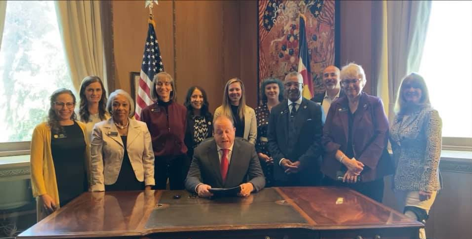 Bill sponsors and Young Invincible Policy Fellow, Sarah Staron, were quoted in the following news piece:
Bill sponsors and Young Invincible Policy Fellow, Sarah Staron, were quoted in the following news piece: 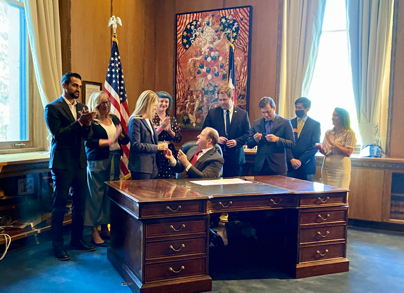 Bill advocates and policy fellow, Sarah Staron, were quoted in the following article on the importance of passing legislation like HB21-1173:
Bill advocates and policy fellow, Sarah Staron, were quoted in the following article on the importance of passing legislation like HB21-1173: 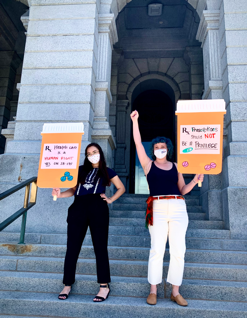 Sarah Staron, Policy Fellow and Linda Schiller, Research Fellow, attended a rally at the Capitol with CCHI and other healthcare advocates in support of SB21-175, Prescription Drug Affordability Review Board on Wednesday, May 19th. Sarah and Linda also testified before the House Health & Insurance Committee in support of SB21-175 on the evening of May 19th.
Sarah Staron, Policy Fellow and Linda Schiller, Research Fellow, attended a rally at the Capitol with CCHI and other healthcare advocates in support of SB21-175, Prescription Drug Affordability Review Board on Wednesday, May 19th. Sarah and Linda also testified before the House Health & Insurance Committee in support of SB21-175 on the evening of May 19th. 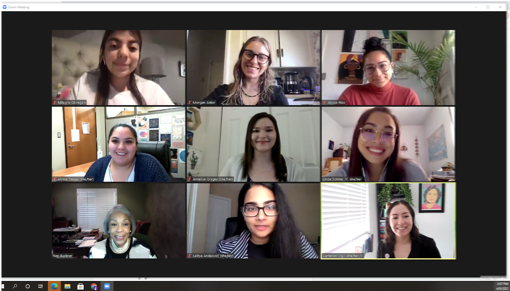 Once HB21-1068 was introduced, our
Once HB21-1068 was introduced, our 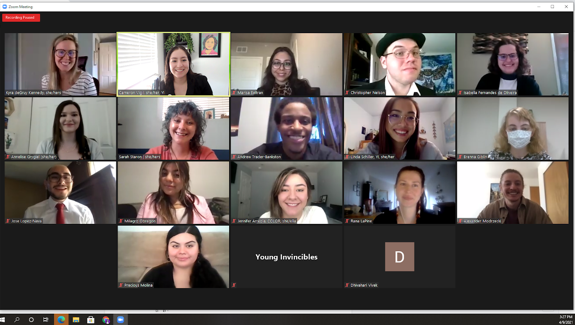 Remove Lawful Presence Verification Credentialing
Remove Lawful Presence Verification Credentialing